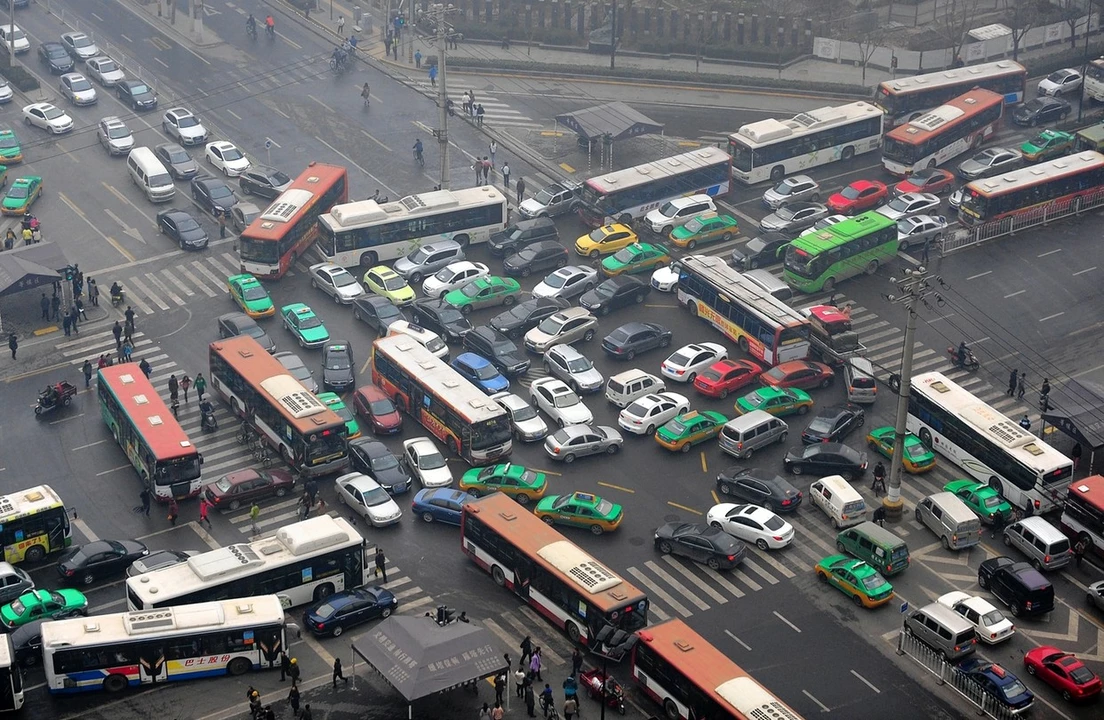Traffic Congestion: How It Affects Your Health and Medication
Stuck in traffic again? Traffic congestion isn't just annoying — it can affect your health, stress levels, and even how you take your medicines. When commutes drag on, you face more air pollution, more stress, and a higher chance of missing appointments or doses.
Air pollution from idling cars raises short-term breathing issues for people with asthma or COPD. Pollutants like nitrogen dioxide and fine particles can trigger wheezing, coughing, or a need for rescue inhalers. If you have respiratory meds, keep them handy and watch for worsening symptoms after long traffic exposure.
Stress and anxiety rise during long jams. That spike in stress hormones can worsen heart conditions and high blood pressure. If you take blood pressure pills or heart meds, consistent timing matters — long delays can throw off schedules. Use phone alarms tied to medication time rather than arrival time.
Quick health tips when stuck in traffic
Use cabin air recirculation to limit outdoor pollution entering your car, but don't keep it on too long if you have multiple occupants. Keep a small kit with essential meds: inhaler, nitroglycerin (if prescribed), diabetes glucometer and fast sugar. Stay hydrated and breathe slowly; short breathing exercises lower heart rate and calm nerves.
Never use a medication that causes drowsiness right before driving. Antihistamines, some painkillers, and certain antidepressants can impair focus. Ask your pharmacist about side effects and safe alternatives if you commute daily. If a medicine makes you sleepy, plan to take it at home or use public transit so you can rest.
How to avoid missed doses and delays
Set reminders tied to time of day, not to travel. Keep a spare supply of critical meds at work or in your glove compartment (store as the label instructs). Use a weekly pill box to track doses, and enable pharmacy automatic refills or home delivery to avoid last-minute trips. Telemedicine can replace some in-person visits and reduce the need to drive during rush hour.
Planning beats frustration. Check traffic apps before you leave and pick alternate routes or off-peak hours when possible. Carpooling reduces the number of cars on the road and lets someone else handle driving so you can rest. Ask your employer about flexible hours if traffic affects your ability to take meds on time.
Community solutions help too. Support local policies for better public transport, safer bike lanes, and staggered delivery hours for freight. These measures cut congestion and reduce pollution for everyone.
Finally, talk to your healthcare team. Mention long commutes, stress, or exposure to pollution. Pharmacists can suggest dosing schedules or non-drowsy options; doctors can adjust treatment plans to fit your routine. Small changes to how you handle traffic can protect your health and keep your treatment on track.
If you travel through hot weather, protect meds from heat. Keep insulin and temperature-sensitive drugs in insulated bags or a cooler pack. Check expiry if stored in a hot car and replace any medication that looks different.

The impact of traffic congestion on urban air quality
As a city dweller, I've experienced firsthand the impact of traffic congestion on urban air quality. I've noticed that during rush hours, when traffic is at its peak, the air feels heavier and polluted. Studies have shown that the increased number of vehicles on the roads leads to higher emissions of harmful pollutants, such as nitrogen dioxide and particulate matter. This not only affects our health but also contributes to climate change. In my opinion, finding sustainable solutions to reduce traffic congestion is crucial for the well-being of our cities and the planet.
June 2 2023